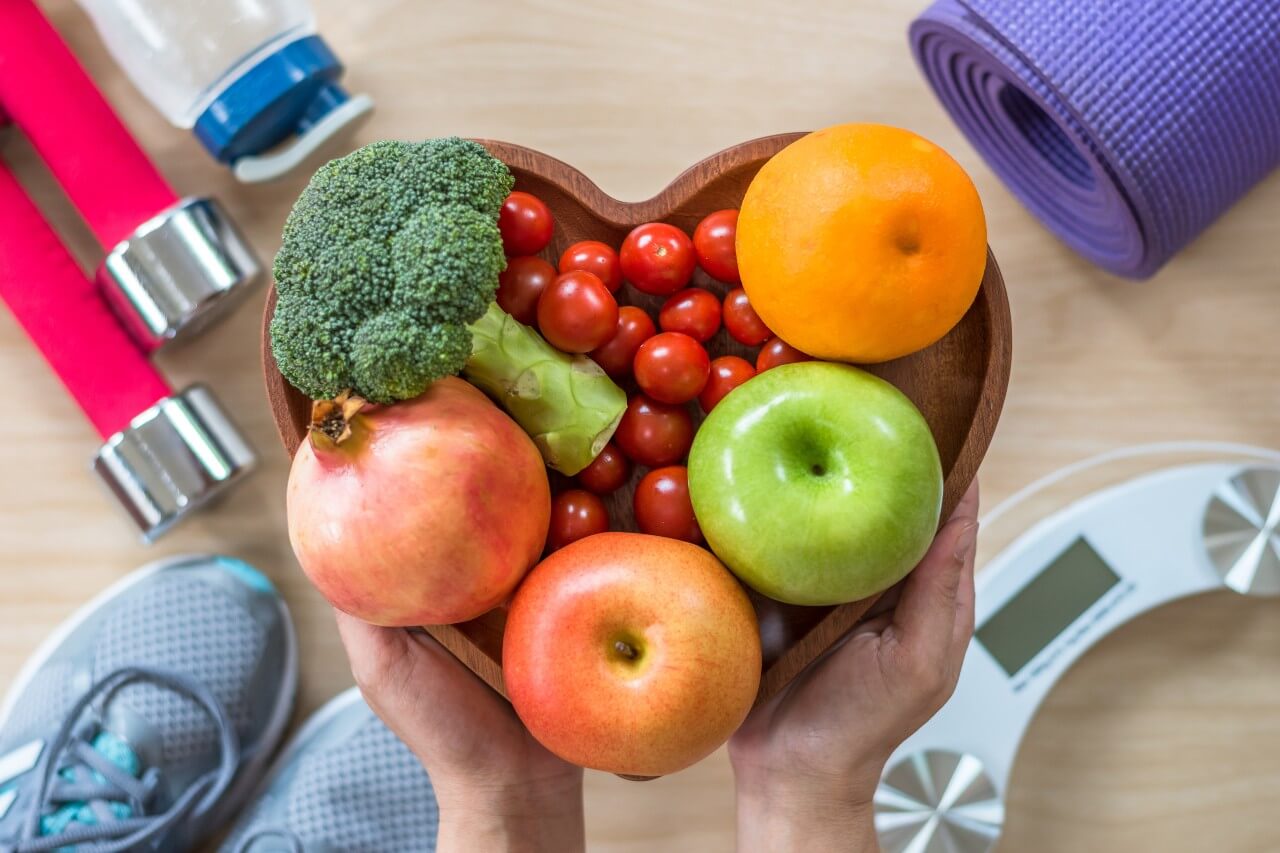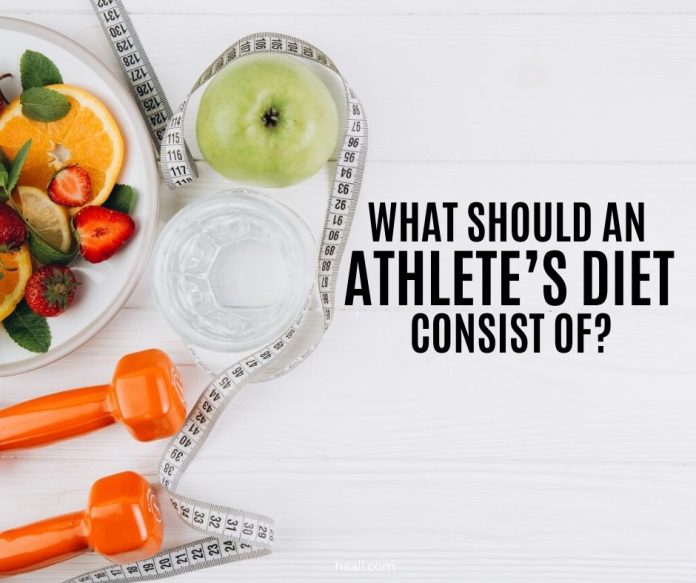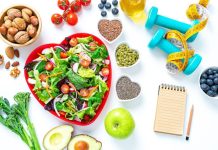Proper diet is one of the keys in which an athlete can load up for enhanced performance, strength, and endurance. Food provides fuel to the body and is responsible for letting our bodies operate at its maximum capacity.
All sports are competitive and this goes without saying that all athletes work hard to get ahead of the rest. Because of the regular physical training that sports players have to endure, they require various ways to fuel the body efficiently.
An athlete should prioritize proper training and diet plans to increase the chances of winning the competition and maintain overall fitness. Here are the major considerations in planning a proper diet for an athlete’s special requirements:
Table of Contents
Stack Up on Healthy Carbohydrates
We’ve known about this since we’re kids: carbohydrates fuel our body with an energy source. This is especially important for athletes who perform high intensity and energy-demanding physical activities. Our body converts carbs to glucose, a form of sugar. Glucose is then stored in our muscles in the form of glycogen, which is later converted to energy as we perform physical activities.
Quinoa, oats, buckwheat, and sweet potatoes are just a few of the major sources of healthy carbohydrates for athletes.
Pro Tips: Before a big competition, load up on healthy carbs for up to four days to increase your glycogen reserves. On the event date, eat your last meal up to four hours before exercising so that you can empty your stomach. Make sure to hydrate and replenish all nutrients during training sessions.
Consume Enough Protein
Proteins don’t fuel us with energy, but they are essential for building and repairing our muscles.
The Dietary Reference Intake (DRI) is 0.36 grams of protein per pound (0.8 grams per kg) of body weight. Rough estimates for the average sedentary man is 56 grams per day and 46 grams per day for the average sedentary woman.
Athletes on strength training have higher requirements of about 1.8 grams of protein per kilogram, or 0.82 grams of protein per pound of body weight daily, or about 20 percent of their total calorie intake from protein, according to the American Academy of Nutrition and Dietetics.
Lean meat, eggs, dairy, yogurt, and legumes are the most preferred protein sources for athletes.
Pro Tip: Milk may likewise be your best source of carbs and protein. This healthy beverage is a great post-out drink because it aids in muscle recovery. You may consider protein supplements but be conscious of your intake as these can put a strain on your kidneys.
Fat is Not Always Bad

Dietary fat plays a secondary role in supplying energy to our bodies. For instance, marathon runners can turn to stored fat for energy when carbohydrate sources run low. However, as with other food groups, moderation is key.
You can turn to nuts, avocados, olive, and coconut oil as they’re the good guys. Inversely, reduce your intake of vegetable oils and corn, or soybean oil. Consuming unsaturated fat from fatty fish like salmon and tuna may be helpful for athletes, too. The keyword is moderation. An athlete is not so different from a person trying to lose weight.
Pro Tip: Don’t take fatty foods on the day of your competition, as they can trigger an upset stomach.
Nutritional Supplements
Sports nutrition supplements, otherwise known as “ergogenic aids,” are often sold on the premise that they enhance overall athletic performance, reduce injuries, and speed up recovery during intense workouts. Ergogenic aids are substances that enhance energy production and recovery, as well as remove fatigue.
Among the more common ingredients of these supplements are amino acids, protein, creatine, and caffeine. Some sports players, weightlifters especially, take prohormone to improve muscle mass and athletic performance.
Additional Tips for Athletes:
Hydrate often
Hydration should be one of the priorities of an athlete, too. A dehydrated athlete will fail to achieve his or her peak performance, as inadequate fluid intake can lead to increased blood pressure, reduced sweat rate, and erratic body heat distribution. Lack of fluids can also result in the acceleration of glycogen conversion, which causes athletes to experience early muscle fatigue.
Pro Tip: Check the color of your urine to measure hydration. If it’s pale yellow, that means you’re getting enough, while a bright or dark yellow hue signal you to take more fluids. Experts recommend endurance athletes take up to 12 ounces of fluid every 10 or 15 minutes.
Replenish Electrolytes
All humans need electrolytes to survive, as several bodily processes rely on the electrical charge supplied by electrolytes to function properly. When you sweat, your body loses both fluids and electrolytes.
To replace them, you can take sports drinks or load up on food such as bananas, kale, avocados, spinach, broccoli, potatoes, and many more.
Pro Tip: Mix energy drink with water in equal parts in order to efficiently replace fluids and electrolytes lost by the body during exercise or athletic training.
Some of the Best Food for Athletes Include:

Eggs. Highly-rich in protein, an egg is also packed with choline, an essential nutrient that helps athletes achieve higher endurance rates. It also contains high levels of B-vitamins, essential in keeping us energized.
Milk. Drinking milk is helpful to athletes, as this beverage has casein and whey protein. The former is digested by our bodies and ensures long-term muscle recovery. Whey protein, on the other hand, is absorbed by our bodies swiftly and helps in the quick recovery of muscles during intense workouts.
Berries. These fruits are rich in antioxidants, which reduce oxidative stress resulting from vigorous physical activities. Berries are packed with phytochemicals that help retain muscle strength, too.
Salmon. This sumptuous dish is perfect for athletes in that it minimizes inflammation from athletic activities. Rich in lean, muscle-building protein and omega-3 fatty acids, salmon is also said to help prevent heart disease.
Pasta. This food is one of the healthier sources of carbs, our body’s main energy source. Choose whole-grain pasta, which typically contains less sugar than white pasta.
Beans. Beans are both rich in protein and carbohydrates, two of the essential nutrients needed by humans in general. What’s more, beans have a low glycemic index, making you feel fuller for a longer period as it provides sustained energy–perfect for athletes.
Bananas. Aside from being a rich source of electrolytes, bananas are also packed with potassium. Consuming bananas can help manage an athlete’s fluid intake and helps prevent one from getting muscle spasms or cramps.
Nuts. Protein-packed and rich in healthy fats, nuts should be part of an athlete’s regular diet. These healthy food helps manage your blood sugar and delays carb digestion, making you feel fuller, longer. Nuts also help protect your bones and muscles because of their anti-inflammatory properties.
Leafy Vegetables. Spinach and kale, broccoli, cauliflower, and brussels sprouts are packed with nutrients and may serve as energy and oxygen-rich sources to help athletes boost their performance. These green, leafy veggies also contain antioxidants, vitamins, and minerals, such as vitamins A, K and B6, and calcium and iron, which are big in preventing inflammation.
Flaxseed, olive, and coconut oil. These are a few of the rich sources of monounsaturated and polyunsaturated fats, considered healthy fats because they aid in raising high-density lipoprotein (HDL) cholesterol and reduce the unhealthier low-density lipoprotein (LDL) cholesterol. Foods containing omega 3 and 6 fatty acids are essential since the body cannot produce them naturally. Coconut oil is also rich in medium-chain triglycerides (MCTs), which can help athletes endure a vigorous workout.
Final Thoughts
As an athlete, your competitive edge comes in the form of proper training and adequate intake of healthy and nutrient-rich foods. A great balance of carbs, proteins, healthy fats, and fiber is needed to fuel an athlete’s special nutrient needs to maximize performance. The foods mentioned in this article are only a few of the many which are known to boost energy levels and accelerate muscle recovery after a high-intensity workout.




